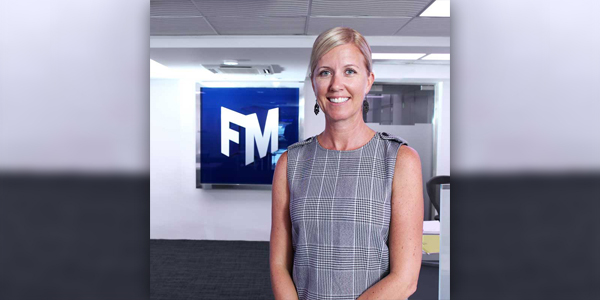Column: Can You Ever Plan For Unexpected?
[Written by Carla Seely]
Murphy’s Law – can you ever really plan for the unexpected?
I am not superstitious but I certainly take note of patterns and trends, whether it is “Things always happen in threes” or “It’s Murphy’s Law” – meaning anything that can go wrong will go wrong. One thing I have discovered over the course of my life is that nothing runs like clockwork and emergencies do happen.
A lot of us in the working population cannot wait for our pay cheque to hit our bank account, only to spend, spend, spend down to the last cent and then wait for the next pay cheque to arrive. Others systematically divide their money into compartments: so much for bills, so much for savings, and so much for spending.
So the question is: How do you manage your money and plan for emergencies?
The first step is to accept the fact that nothing runs like clockwork and emergencies will occur. Emergencies are relative, so it is important to define what would constitute an emergency for you, based on your personal circumstances. An example could be if you found that you had to care for someone who is very ill at the same time that your employer closed down your department and made you redundant. Or if your car broke down suddenly, or you couldn’t get together the money to pay the university fees of your son or daughter.
I would always suggest that you begin to build an emergency fund that is large enough to carry you through a minimum of six months’ worth of household expenses. If you have a job that is sales-oriented and commission-based, you should consider saving an amount equivalent to eight months of household expenses. If you do not currently have an emergency fund or find it difficult to save money, the key is to start small, with the understanding that accumulating these funds will take some time.
While you are slowly accumulating the money to set aside for an emergency, it is important to note that the funds should not be dipped into to pay for vacations or to buy any type of gift or luxury item, because these are things we can do without. Try to keep your emergency fund in a bank separate from where you do your regular banking. This avoids the temptation to withdraw the money when you “just want it”. A great way to save is through your company pension plan by additional voluntary contributions – having an extra 1 or 2 per cent taken from your monthly pay cheque will add up quickly. The funds will not be locked in, so in the event you need to access them, they should be readily available [make sure to check your company pension plan rules to confirm beforehand]. Assuming your company pension plan has the appropriate flexibility, the money you save in your emergency fund could be invested into something that is liquid and with little risk. The great news is that in the event nothing happens [or takes a long time to happen], you will have built up some great reserves. And if you don’t use them, they are additional funds for retirement.
Remember: the key is to set aside the money to cover the emergency but also to reduce your spending and avoid debt. An emergency fund should not involve using your credit card or taking out a line of credit. Why would you go into more debt? It is common sense that if you don’t have the money to pay for the emergency outright, then you don’t have the money to pay off the debt.
The basic purpose of an emergency fund is to tide you over and cover the financial gaps, which include unexpected expenses or unexpected loss of income. It is there to give you some time to make the necessary adjustments when a gap develops between income and expenses. Planning your financial future, and accepting that everyone experiences Murphy’s Law and bumps along the road, will give you peace of mind knowing that you have the right tools in place to cover yourself and your family.
- Carla Seely is the Vice President of Pension and Investments at Freisenbruch-Meyer. If you would like any further details, please contact her at cseely@fmgroup.bm or call +1 441 297 8686.
20 Most Recent Opinion Columns
- 01 May: Column: The Inspiration Of Flora Duffy’s Victory
- 29 Apr: Chris Famous Column: Which OBA MP Is Next?
- 18 Apr: Column: Insurtech, Demystifying The Hype
- 18 Apr: Chris Famous Column: Tales From BVI Tortola
- 11 Apr: Column: Considerations For Ageing Workforce
- 10 Apr: Column: In Tribute To Bermudian Icon Ira Philip
- 08 Apr: Column: What Is Your Behavioural Finance?
- 02 Apr: Column: Surviving ‘Irmageddon’ In The BVI
- 01 Apr: Column: 21 Billion In Merger & Acquisition Deals
- 31 Mar: Column: ‘Your Voice Must Be Heard’
- 19 Mar: Column: Important Role Of The Health Council
- 08 Mar: Column: Scholarships, People With Disabilities
- 06 Mar: Column: Review Of ‘The Mountaintop’ Play
- 06 Mar: Column: ‘Will Not Accept Anything But Equality’
- 06 Mar: Column: ‘A Little Rebellion Is A Good Thing’
- 06 Mar: Column: Deciphering Investment Risk & Reward
- 02 Mar: Column: We Are Reminded, A Child Shall Lead
- 01 Mar: Column: Famous On Revising The 60/40 Rule
- 28 Feb: Column: Creative Development & Conservation
- 26 Feb: Lisbeth Alvarez: The Importance Of Black History
Opinion columns reflect the views of the writer, and not those of Bernews Ltd. To submit an Opinion Column/Letter to the Editor, please email info@bernews.com. Bernews welcomes submissions, and while there are no length restrictions, all columns must be signed by the writer’s real name.
-


